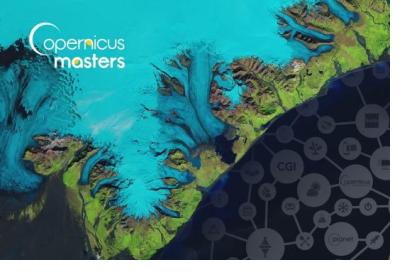An international competition organized by the European Space Agency (ESA) is inviting contributions until 30 June 2019. Copernicus Masters awards prizes to innovative solutions for business and society that use Earth observation data from the European Copernicus programme.
Individuals, universities and higher education institutions, startups, as well as small- and medium-sized enterprises (SMEs) are eligible to participate in the ESA Copernicus 4.0 Challenge. This year, participants have to choose from eight challenges, including topics such as future EO, Artificial Intelligence (AI), Machine Learning (ML), energy, health, sustainable living, smart farming, and digital transportation, as well as maritime, defence and security.
“The Copernicus Masters is the innovative driver for future-oriented applications and business concepts using Earth observation data,” states Josef Aschbacher, Director of ESA’s EO Programmes.
Satellite data can support the achievement of the United Nations Sustainable Development Goals (SDGs) by providing timely information on climate, marine, forests, water as well as food security, and urban planning. Since Copernicus data is reliable, open-access and free of charge, it facilitates creating innovative solutions and products to achievethe SDGs. Companies, entrepreneurs and startups may use the data to establish sustainable business concepts.
The Copernicus programme generates over 15 terabytes of free EO data daily, collected by the Sentinel satellites and other contributing missions. New cloud-based data platforms are developed to receive and process the data. The data platforms work with AI and ML approaches and contribute to developing new applications in the EO sector.
In 2011, Anwendungszentrum GmbH Oberpfaffenhofen (AZO) launched the Copernicus Masters on behalf of ESA and with the support of other partners as part of its mission to foster the user uptake of the Copernicus programme. The partners include ESA, the German Aerospace Center (DLR) as well as Astrosat, Planet, BayWa, and Airbus together with sobloo and the German Federal Ministry of Transport and Digital Infrastructure (BMVI). Since then, ESA, AZO and partnering organizations have organised the annual Copernicus Masters competition for almost 3,300 participants from over 70 countries, generating over 1,300 ideas.

